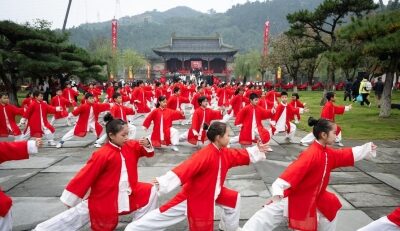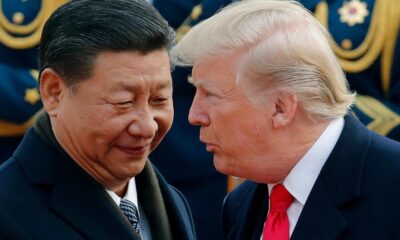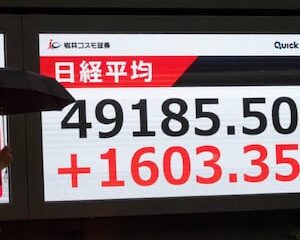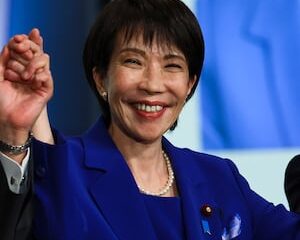Politics
Hong Kong Issues Arrest Warrants for 19 Activists Linked to Protests
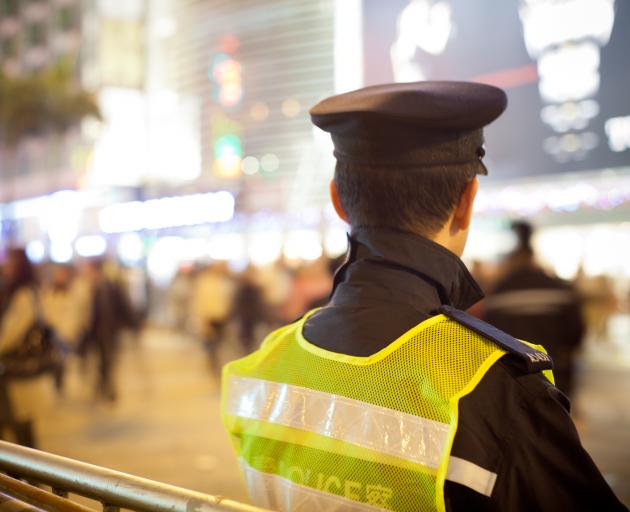
Hong Kong authorities have issued arrest warrants for 19 activists living overseas, accusing them of involvement with an unofficial political group, referred to as the “Hong Kong Parliament.” This group is alleged to have aimed at subverting state power in violation of the national security law imposed by Beijing in 2020. This law was enacted following extensive pro-democracy protests in 2019, which challenged the region’s governance.
The Hong Kong Police Force has stated that the activists organized a referendum and participated in the unofficial “Hong Kong Parliament,” which sought to promote self-determination and draft a new constitution for the region. Police characterized the group as attempting to overthrow the governments of both China and Hong Kong through unlawful means. Investigations are ongoing, with authorities indicating that further arrests may occur.
Among those named in the warrants is businessman Elmer Yuen, political commentator Victor Ho, and activists Johnny Fok and Tony Choi. Four of the individuals already have outstanding warrants, each with a bounty of HK$1 million (approximately NZ$211,000). The remaining 15 individuals, for whom police are offering a bounty of HK$200,000 each, are believed to have organized or participated in the election process for the “parliament” and were sworn in as its councillors. As of now, none of the accused have responded to requests for comment.
International Reactions to Arrest Warrants
The issuance of these warrants has drawn sharp criticism from the UK Foreign and Home Secretaries, who issued a joint statement condemning the actions as “another example of transnational repression.” They asserted that these arrests undermine Hong Kong’s international reputation, emphasizing that the UK will not tolerate attempts by foreign governments to intimidate or harm their critics abroad.
In response, the Chinese embassy in the UK characterized the British government’s comments as a “gross interference” in China’s internal matters and the rule of law in Hong Kong. The embassy urged the UK to abandon what it described as a colonial mentality and stop protecting those it considers criminals.
The political landscape in Hong Kong has been shaped by the 1997 handover from British to Chinese rule, which included a promise of significant autonomy, including freedoms related to speech and assembly under the “one country, two systems” framework. Critics of the national security law contend that it is being used to suppress dissent and limit political freedoms.
Police Warnings and Legal Implications
Hong Kong Police have reiterated that national security offenses represent serious crimes that carry extraterritorial implications. Authorities have urged the wanted individuals to return to Hong Kong and surrender. They stated, “If offenders voluntarily cease their criminal activities, turn themselves in, truthfully confess their crimes, or provide critical information that aids in solving other cases, they may qualify for reduced punishment.”
Additionally, police cautioned that assisting or funding others to engage with the “Hong Kong Parliament” could also lead to criminal charges. This warning reflects the authorities’ ongoing commitment to enforcing the national security law, which they claim is essential for restoring stability in a city that has experienced significant unrest in recent years.
-

 Sports2 months ago
Sports2 months agoNetball New Zealand Stands Down Dame Noeline Taurua for Series
-

 Entertainment2 months ago
Entertainment2 months agoTributes Pour In for Lachlan Rofe, Reality Star, Dead at 47
-

 Entertainment2 weeks ago
Entertainment2 weeks agoNew ‘Maverick’ Chaser Joins Beat the Chasers Season Finale
-

 Sports2 months ago
Sports2 months agoSilver Ferns Legend Laura Langman Criticizes Team’s Attitude
-

 Politics3 weeks ago
Politics3 weeks agoNetball NZ Calls for Respect Amid Dame Taurua’s Standoff
-

 Entertainment2 months ago
Entertainment2 months agoKhloe Kardashian Embraces Innovative Stem Cell Therapy in Mexico
-

 Sports2 months ago
Sports2 months agoGaël Monfils Set to Defend ASB Classic Title in January 2026
-

 World3 months ago
World3 months agoPolice Arrest Multiple Individuals During Funeral for Zain Taikato-Fox
-

 Entertainment4 weeks ago
Entertainment4 weeks agoTyson Fury’s Daughter Venezuela Gets Engaged at Birthday Bash
-

 Sports4 weeks ago
Sports4 weeks agoHeather McMahan Steps Down as Ryder Cup Host After Controversy
-

 Entertainment4 weeks ago
Entertainment4 weeks agoTyson Fury’s Daughter Venezuela Gets Engaged at Birthday Bash
-

 World4 weeks ago
World4 weeks agoNew Zealand Firefighters Plan Strike on October 17 Over Pay Disputes

